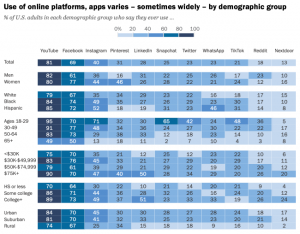— June 13, 2019
Entrepreneurs are often advised to listen to customers, even more so than to their investors, their gut, or their team. After all, customers are the most important component of a successful entrepreneurial business, besting technology, engineering, a great idea, or the ineffable perseverance and drive that distinguishes top entrepreneurs.
Initial Wins Are Lasting Wins
While most entrepreneurs have a sharp focus on the customer, most of that focus dwells around initial wins. These first customers are visionaries or very early adopters, and they respond to the innovation that the entrepreneurial company has produced. They are likely to have special requirements, and the entrepreneur is usually pleased to bend their offering to meet these needs. Geoffrey Moore, the famed author of “Crossing the Chasm” and a business consultant, describes companies having to do “unnatural acts” to win and retain these initial customers.
In this early phase of the company, both customers and the company have to be flexible and amenable to putting in more work to make a new product or service a success. Early customers have to step out on faith and assume more risk. They have to articulate their needs and requirements to the company, so that adjustments or accommodations can be made to increase the functionality and utility of the product/service. The company has to listen to the customer and be willing and able to make these changes or agree on some kind of middle path.
Where Entrepreneurs Stop Listening
Fortunately, most entrepreneurs are gifted with the will and the means to make things happen. Just as they beat the odds to form a viable company and develop a first product or service, they will aggressively make accommodations that facilitate and enable early adopters or visionary customers. This can-do drive and focus, however, ultimately makes it difficult for many entrepreneurs to hear and understand customers once the business and market progresses. Somewhere in between driving results and making sure they deliver, entrepreneurial leaders often become more invested in what they can do to evolve and improve a product or service, instead of focusing on what mainstream customers are experiencing or thinking.
After the first heroically won customers, entrepreneurs tend to become isolated from customers. Rather than fully understanding the broader needs of more pragmatic customers, entrepreneurs are focused on further innovating and expanding their wares. Hearing the customer and understanding their needs, likes, dislikes, and the way in which they engage with a product or service is crucial to product improvements and enhancements. Sadly, most entrepreneurial companies lack the means to gather these insights.
Where Customer Success Comes in Handy
Such input often comes best from a person or team solely dedicated to listening to customers and helping to make the product or service successful for them. This is not a customer service/support or sales role; a Customer Success representative should be a separate and empowered entity. Their focus is not to directly sell or support, but to understand what must be done in order to retain customers and determine what kind of expansion or up-selling is possible and how. Insights from customer experience should be shared with multiple departments of the vendor’s organization: product development/engineering, service/support, sales, marketing and any other group that can shape these findings to work on further improving the product or service offering.
Not placing the Customer Success function directly under sales or support is both a benefit and a difficulty. The independence makes them better listeners and gives them authority over key and crucial customer-related decisions. On the other hand, it can potentially place Customer Success in a no man’s land. The issue becomes acute if customer insights aren’t used for product fixes or improvements.
The Ultimate Solution
One solution to the potential pitfall of Customer Success isolation is a system of record that can not only track and manage Customer Success activities, but can also capture insight, aggregate it and potentially even analyze it. Entrepreneurs become attentive when the same impressions, concerns and needs are expressed by multiple customers, rather than the scattered opinions of one or two.
It may turn out, for example, that certain types of features in a product are not being utilized by customers. A research report from the Standish Group claims that 64 percent of the features in an average enterprise application are either “rarely” or “never” used.
The implication for vendors is to discover what is not used and why. Perhaps the feature is too difficult to use, maybe it is not valuable or maybe it is hidden, and most customers don’t know about it. The answer has important implications for future product development, as well as for the “stickiness” of a product or service and the long-term commitment or retention of customers.
Gathering customer insight and synthesizing it gives entrepreneurs something that is actionable and operational. In the natural entrepreneurial quest of driving improvement, compounded data from customers can play an even larger role than visionary ideas. Being solution-minded, entrepreneurs tend to want to address issues and fix problems before moving into new, untested territory.
Wrapping Up
Paying heed to the customer at the beginning of a product or service market cycle is important to get the business off to a good start. Listening to them once the early customers have already been won and when the company needs to head into its growth phase is perhaps even more critical. Many businesses do not attain necessary business growth simply because they follow entrepreneurial instinct or the reception and insight from initial customers, rather than the pragmatic majority.
Business & Finance Articles on Business 2 Community
(100)





